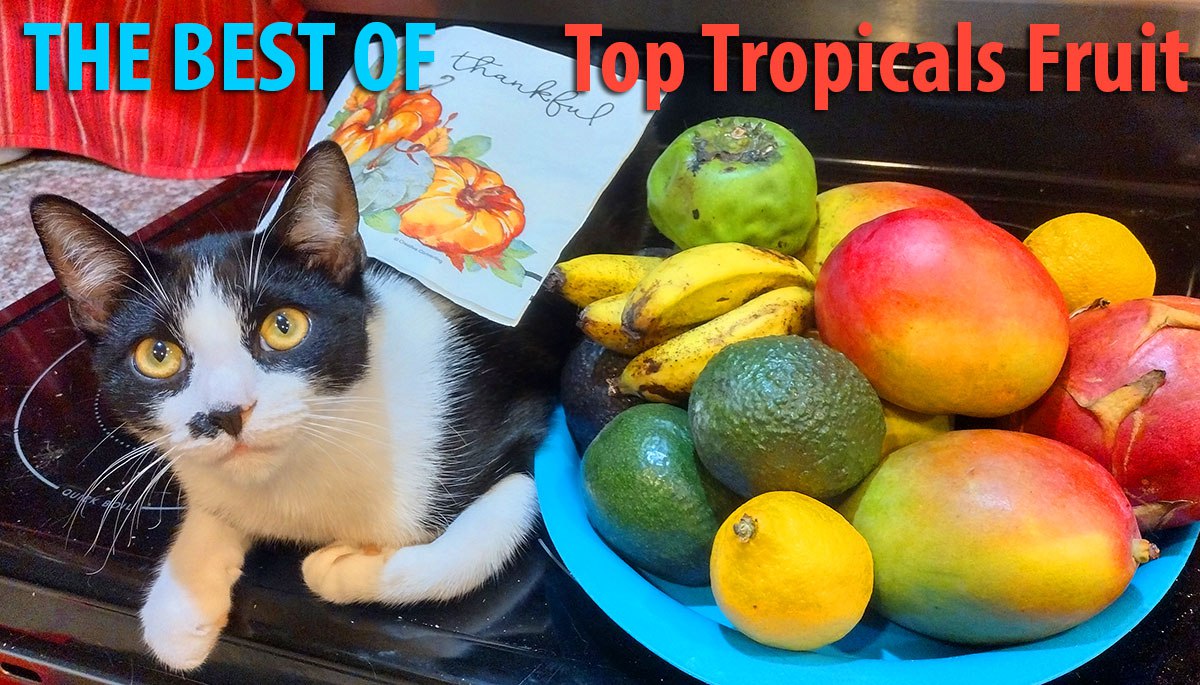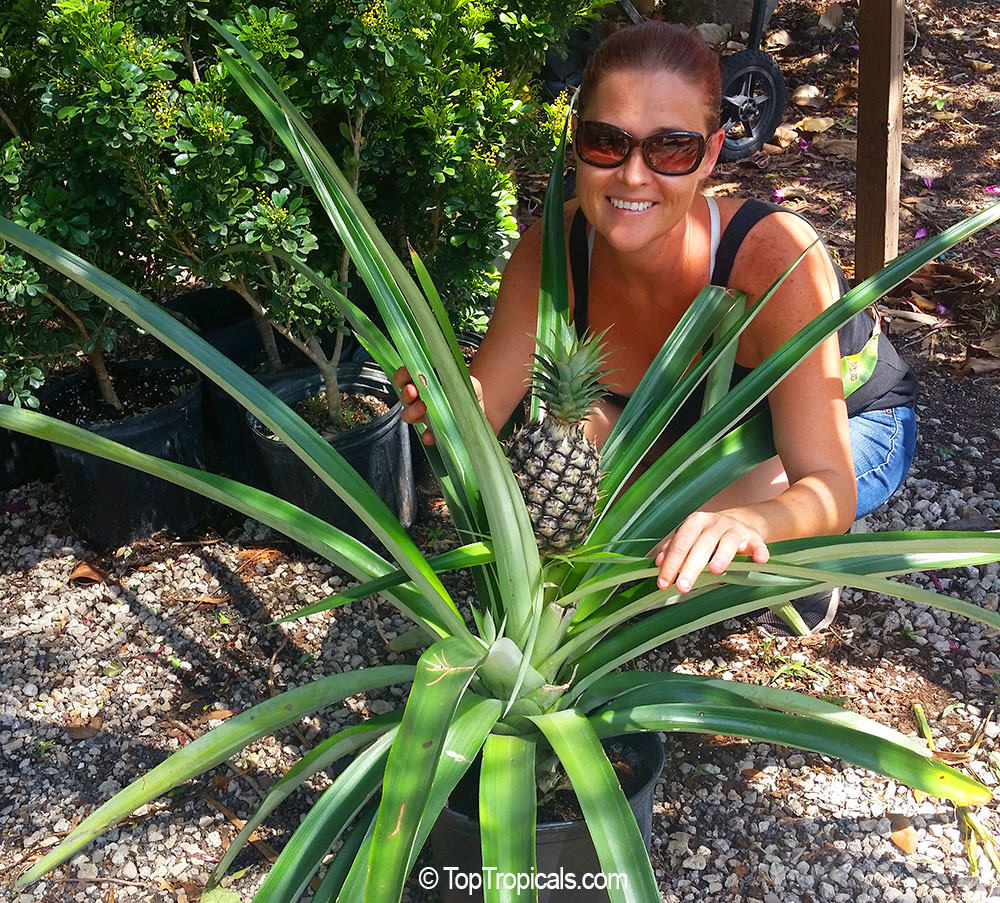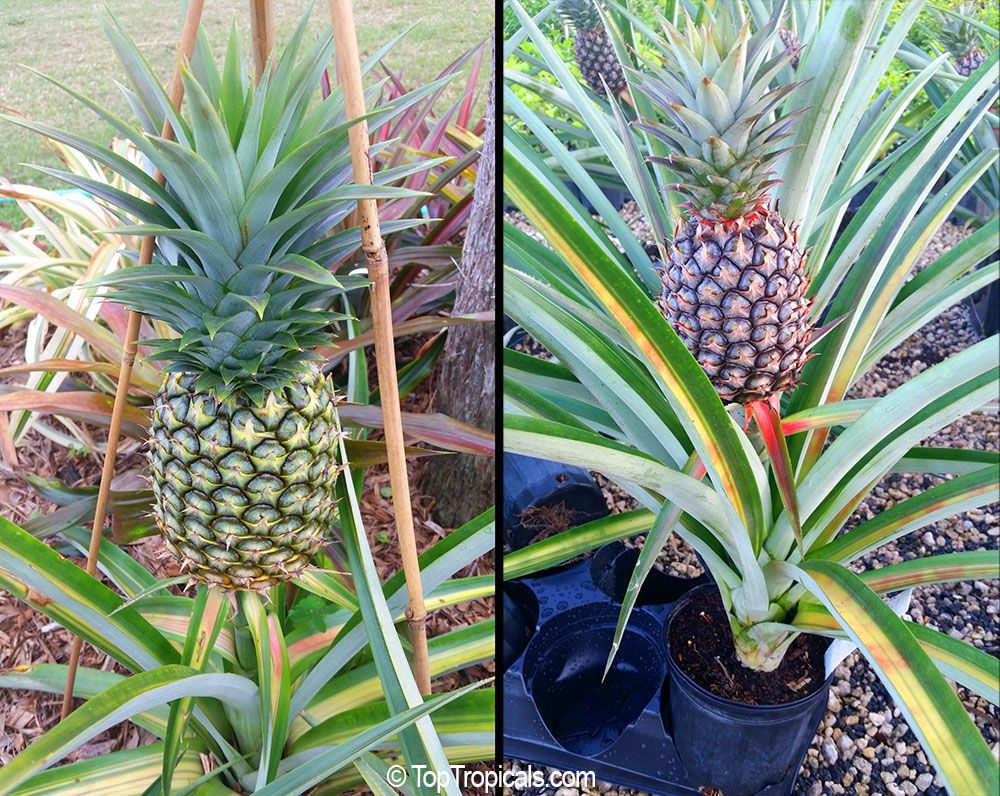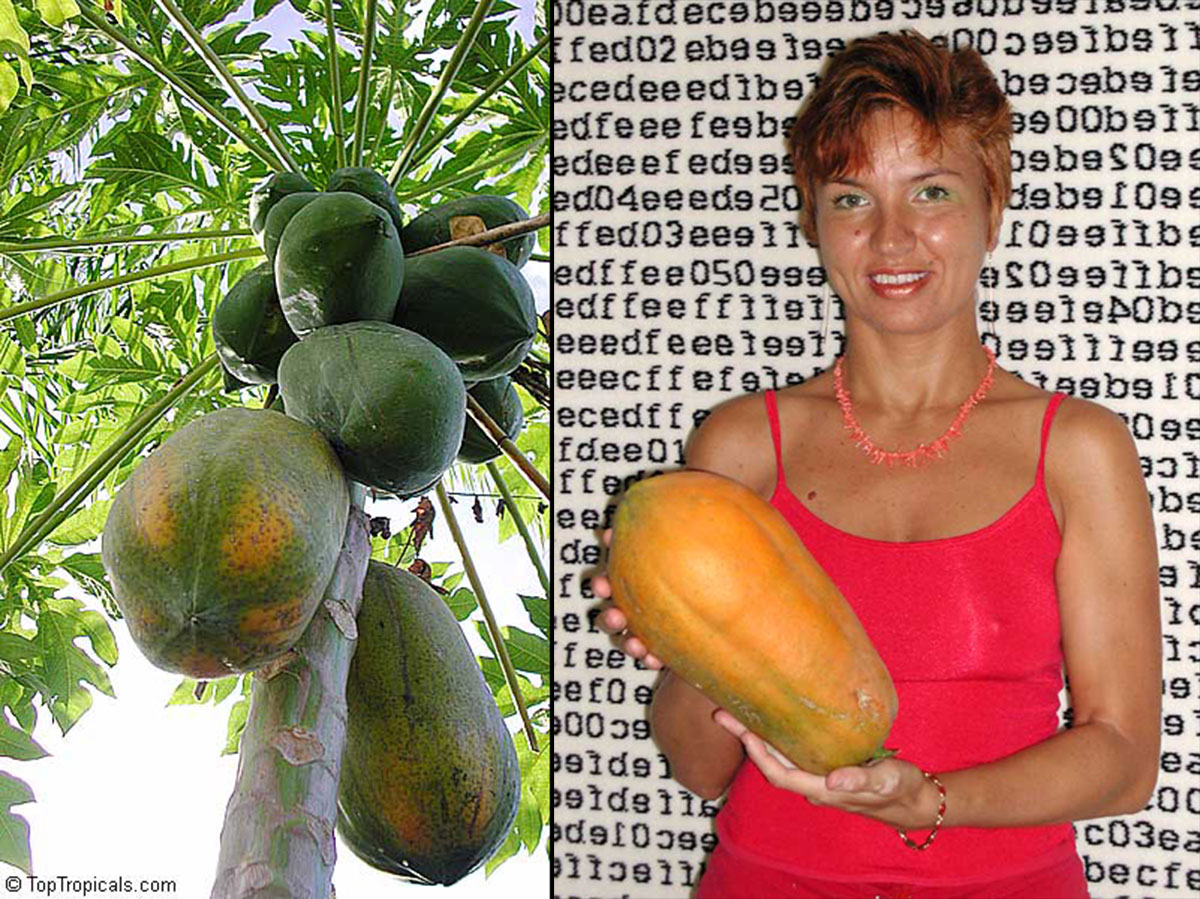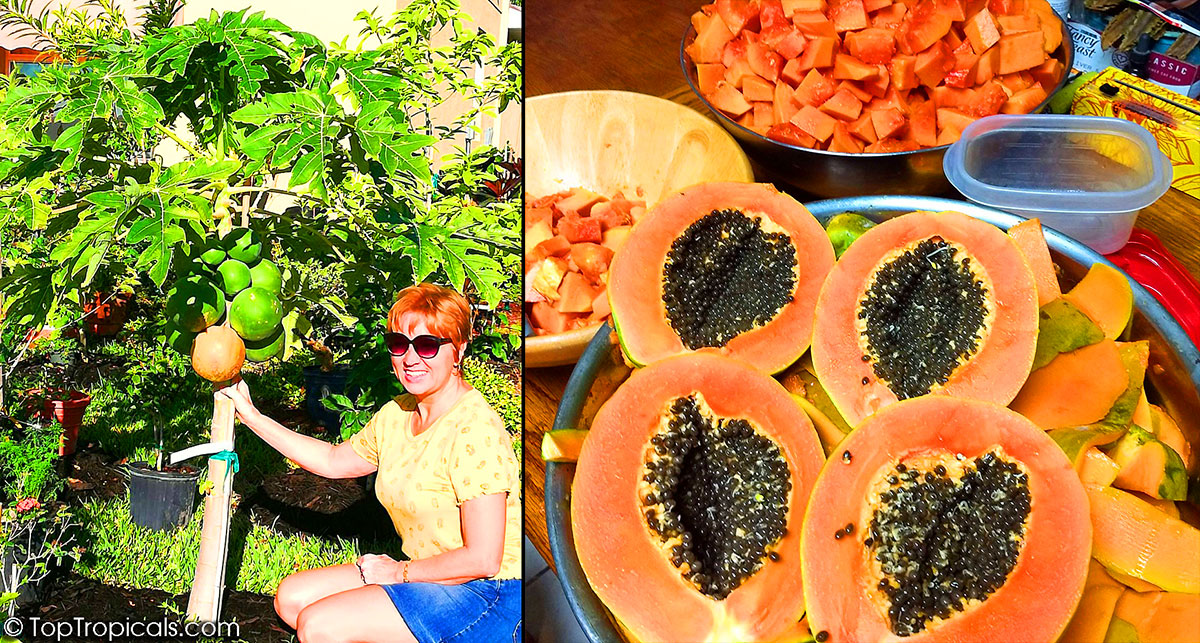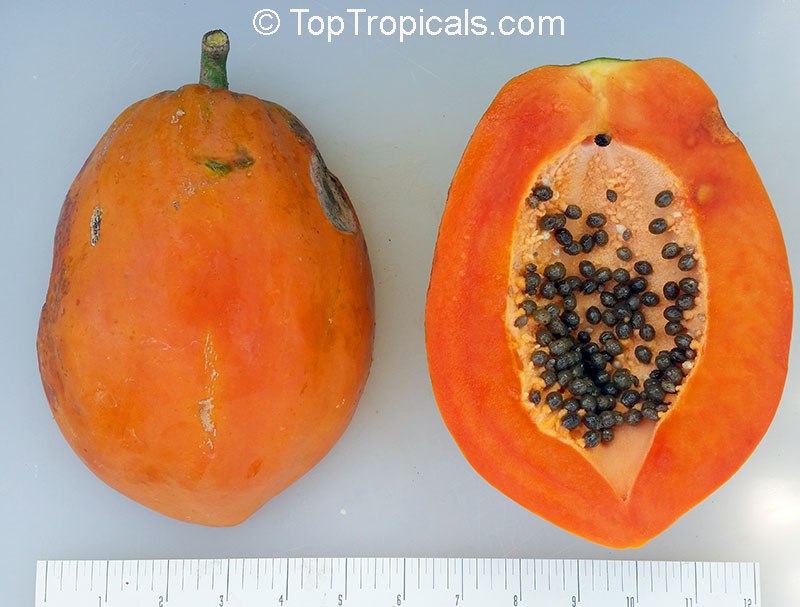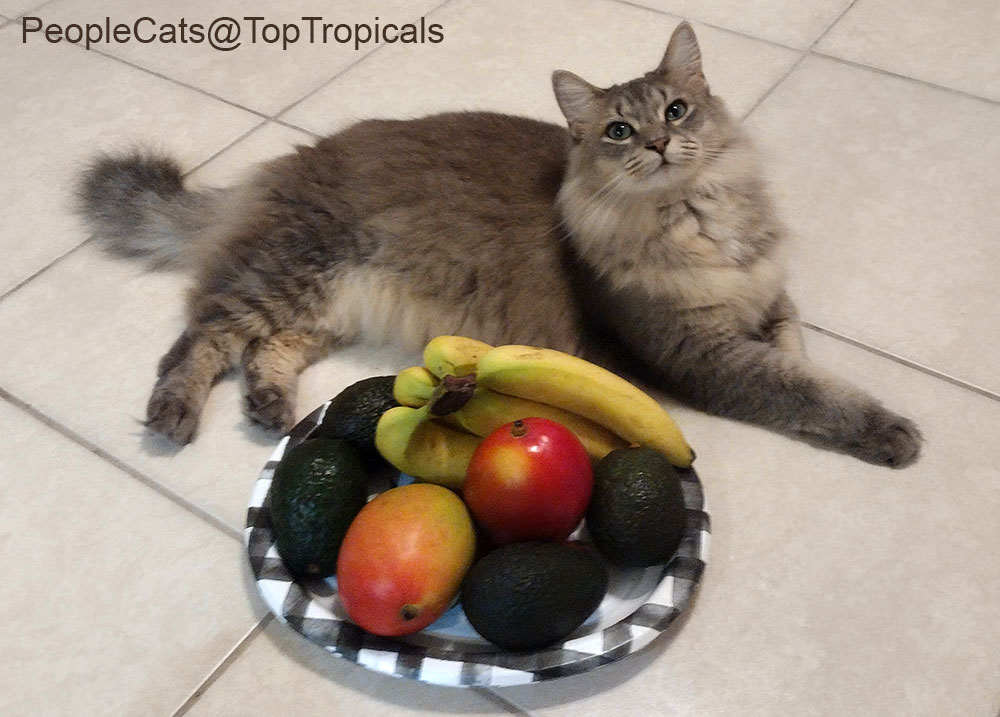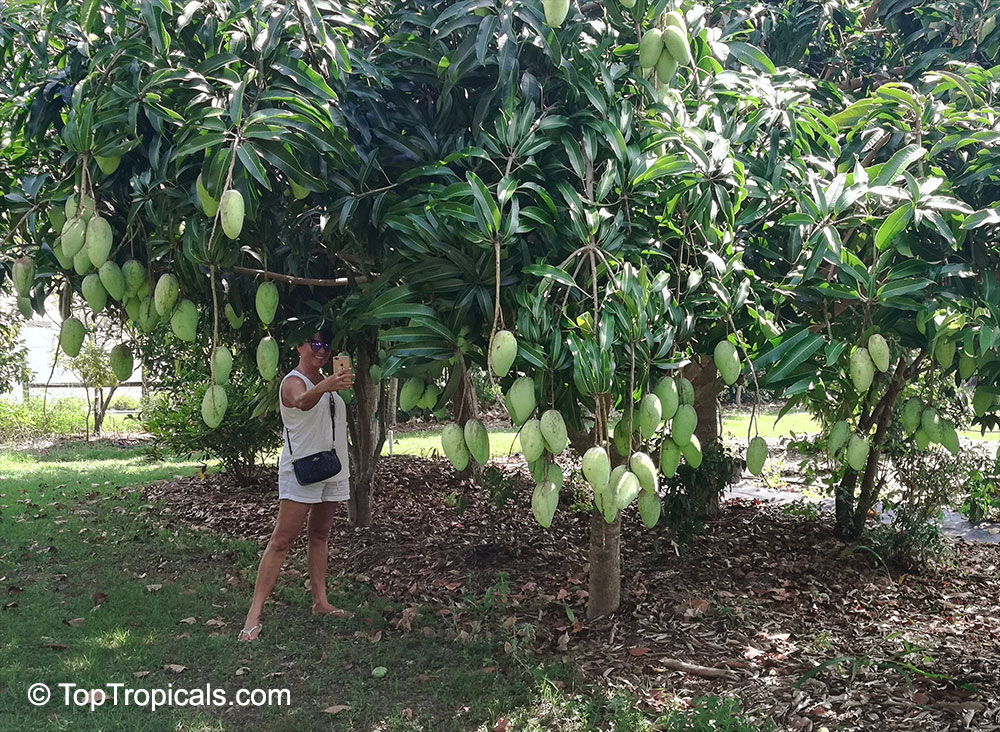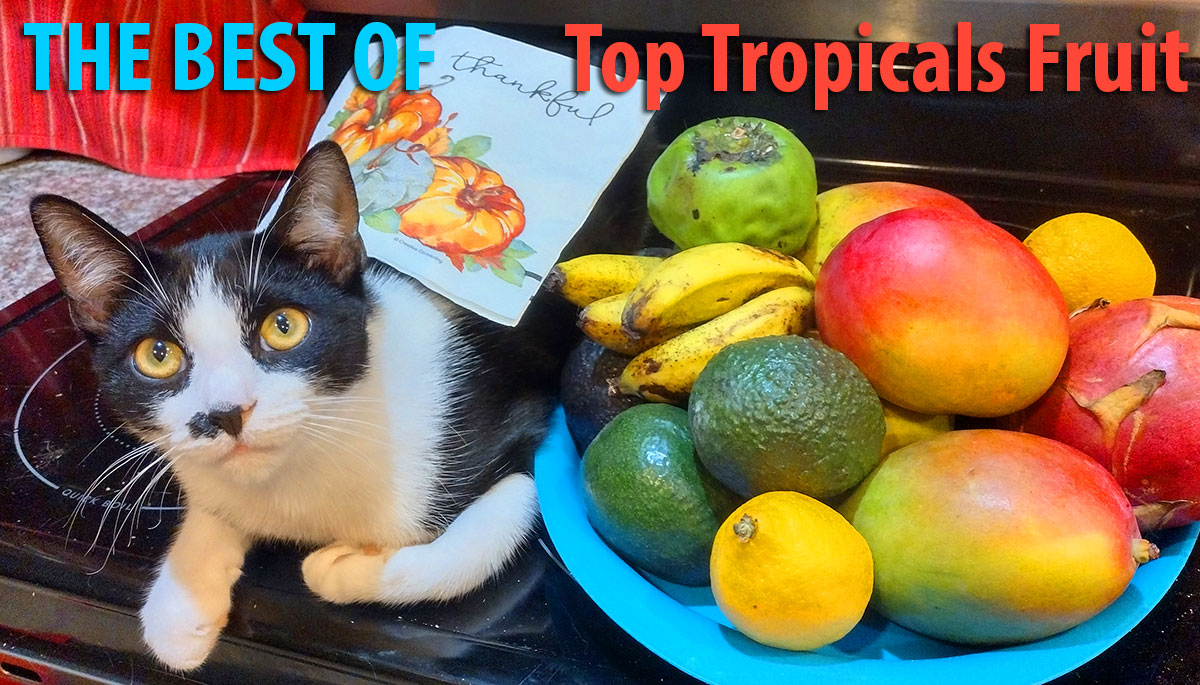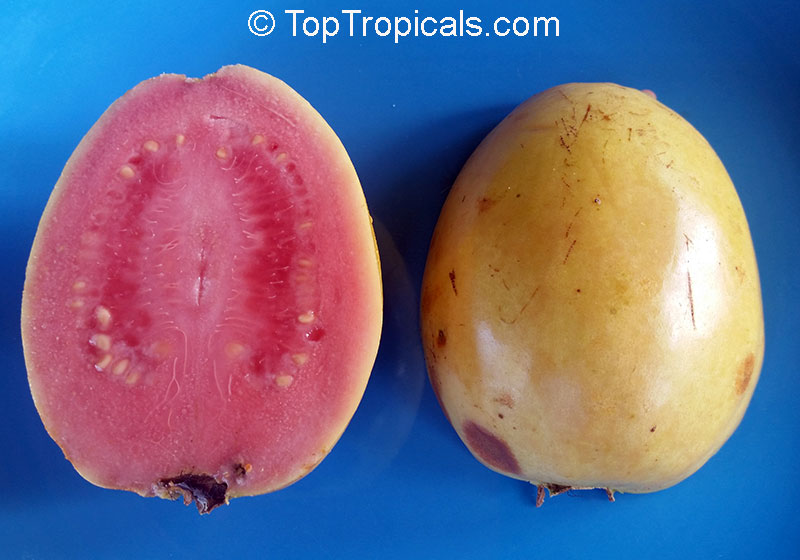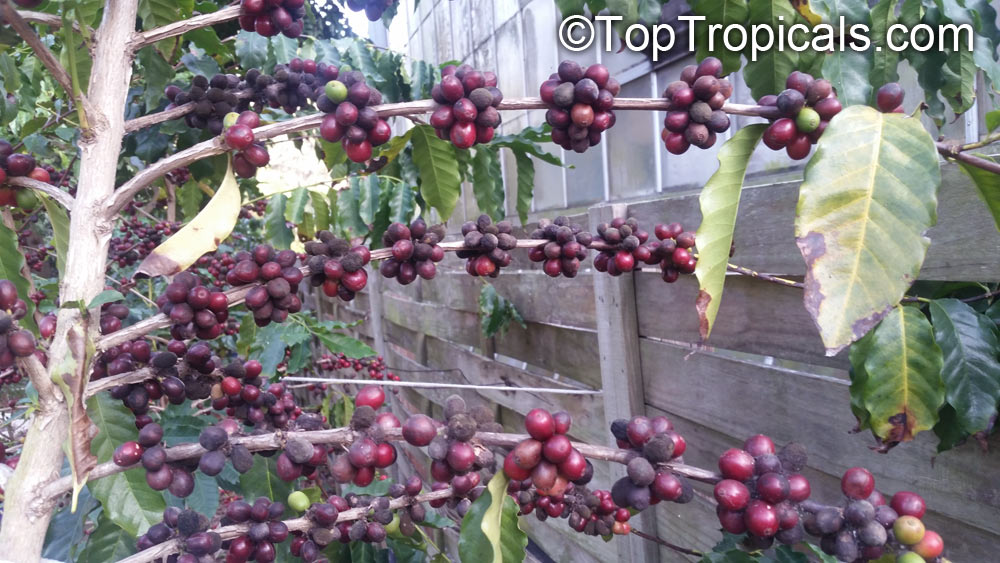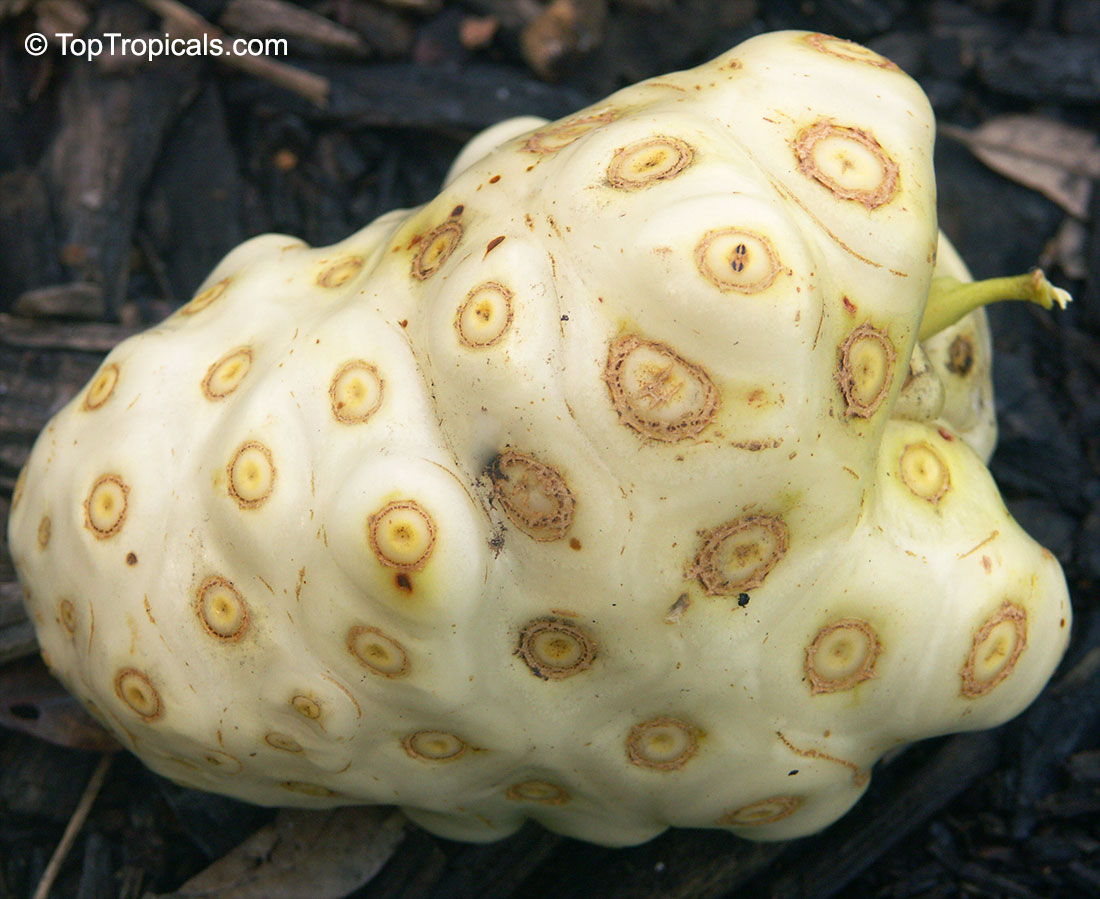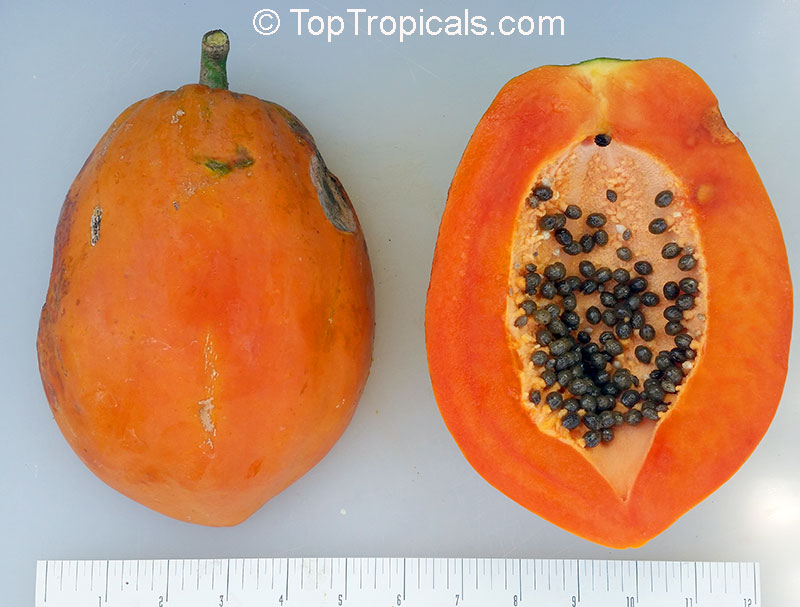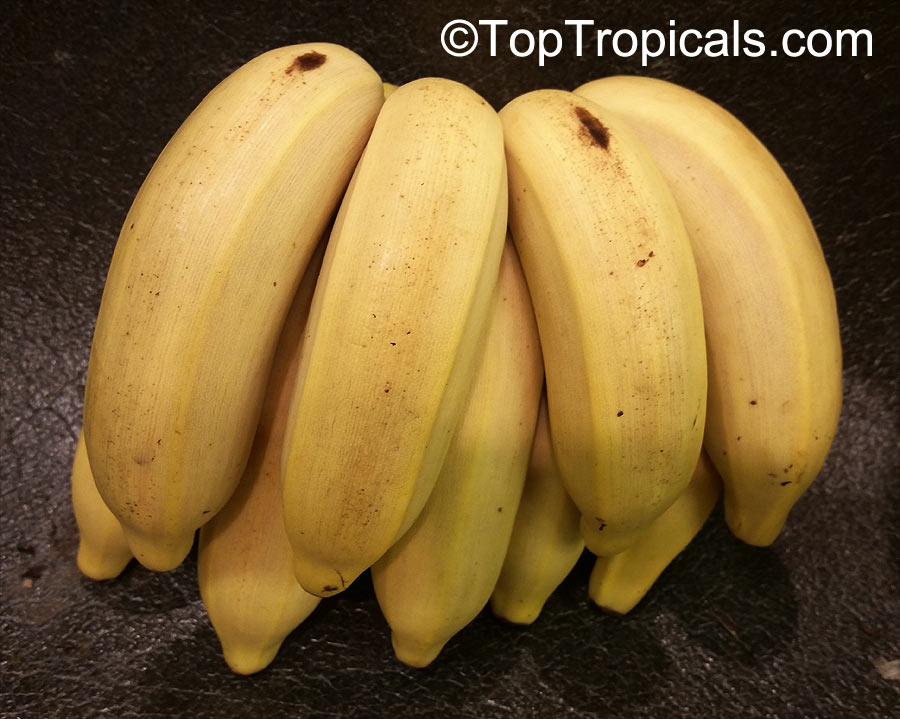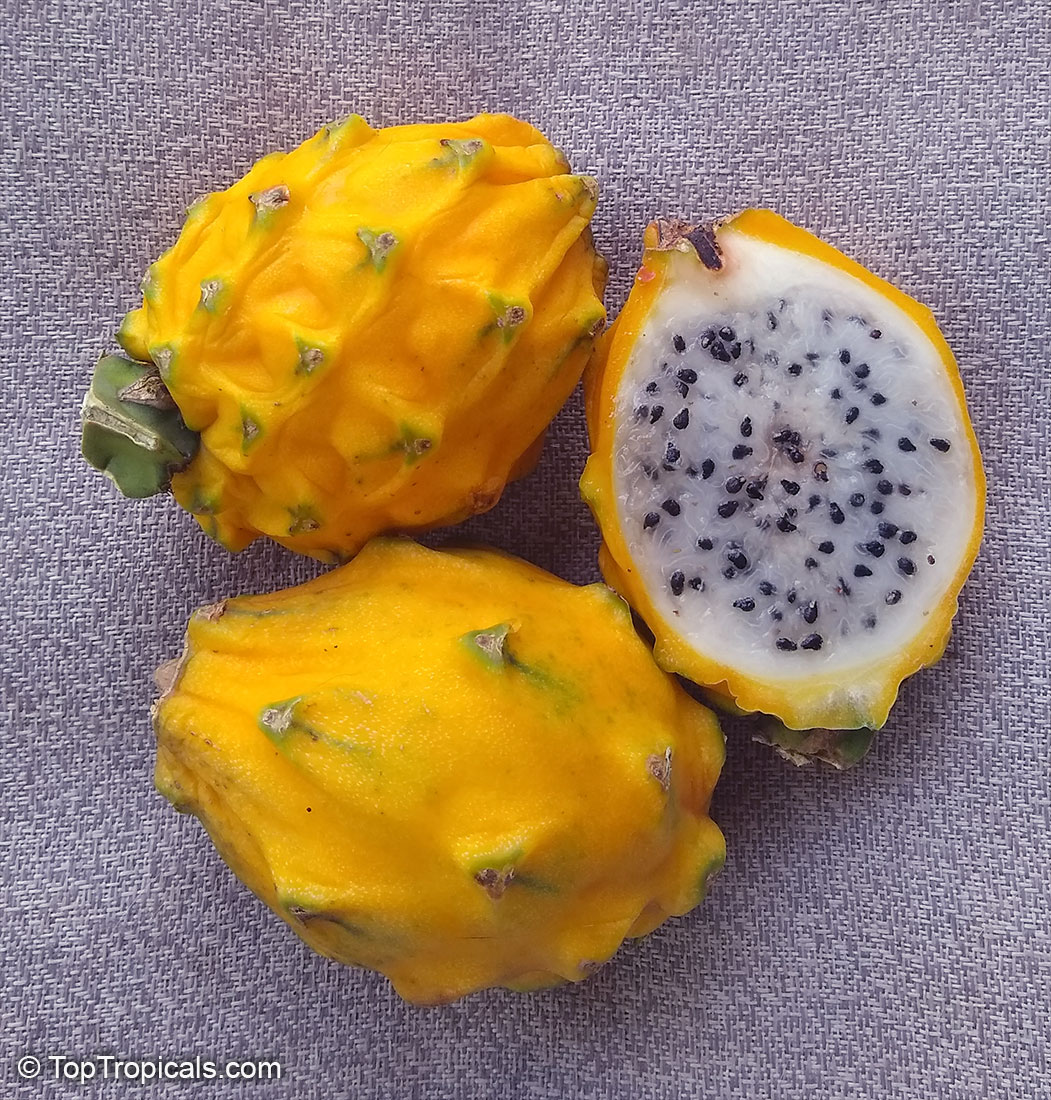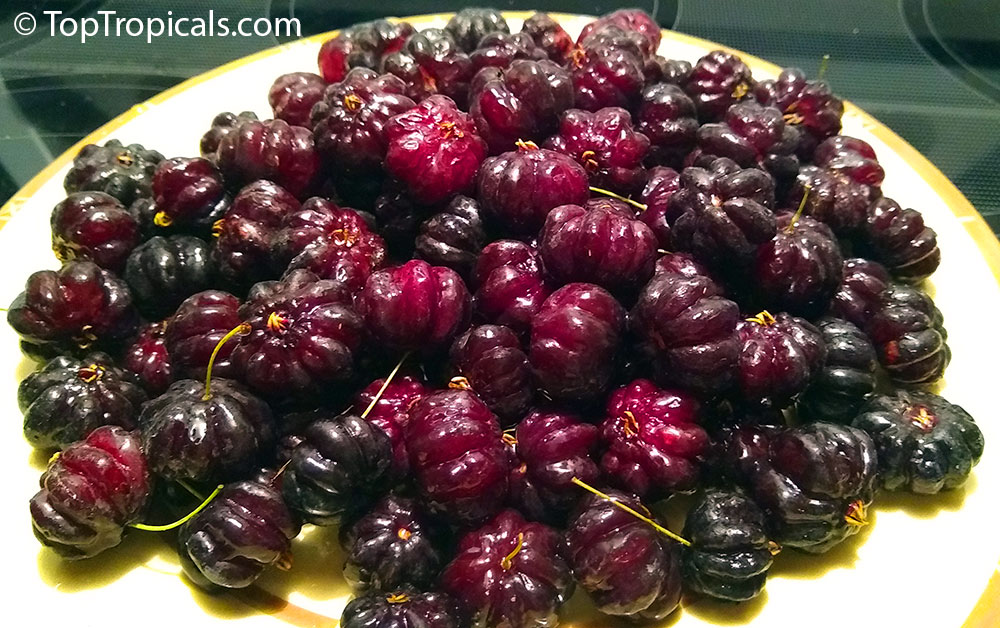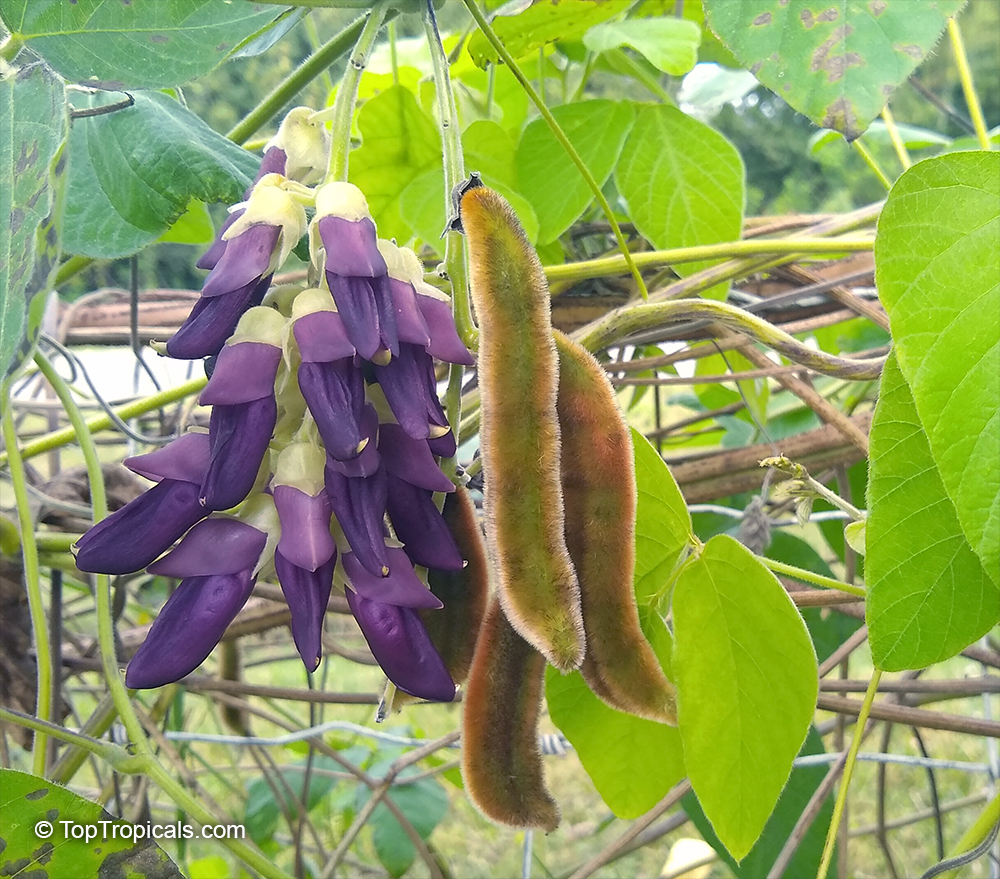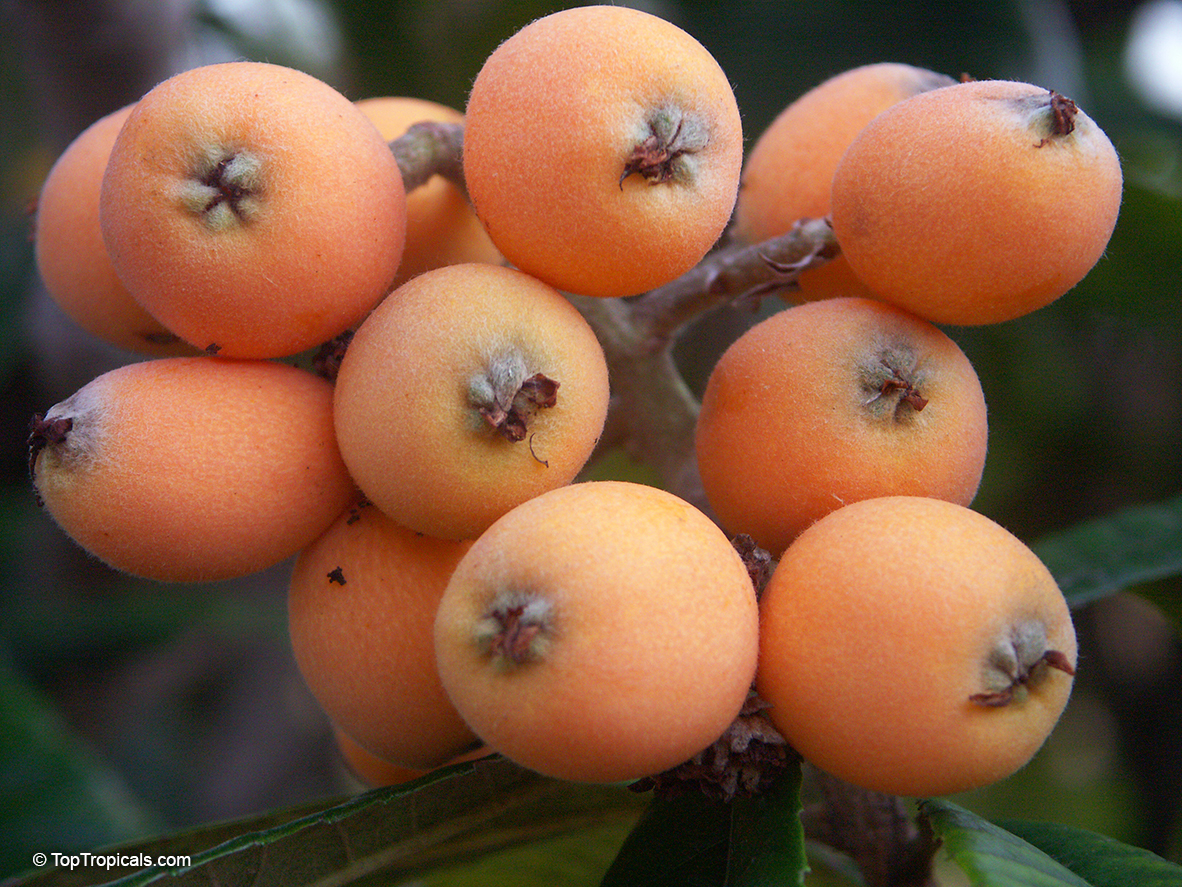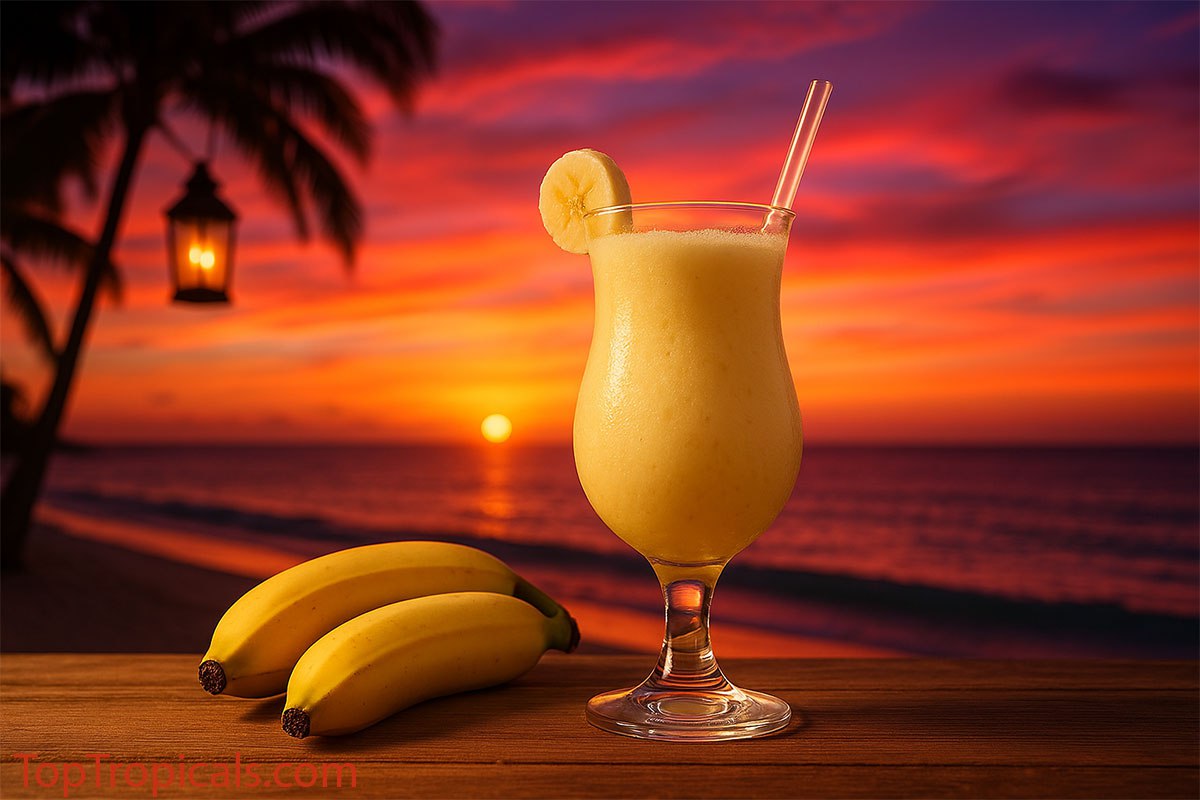Garden Blog - Top Tropicals
Fun Facts: Cacao beans
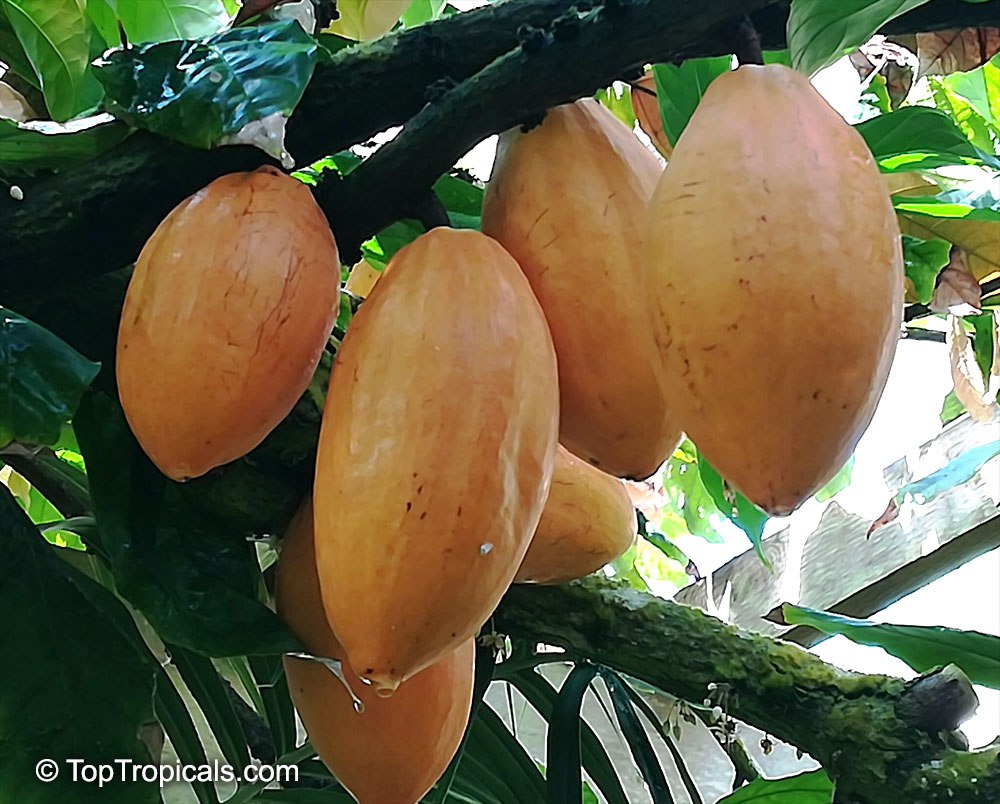
Cacao Chocolate Tree (Theobroma cacao)
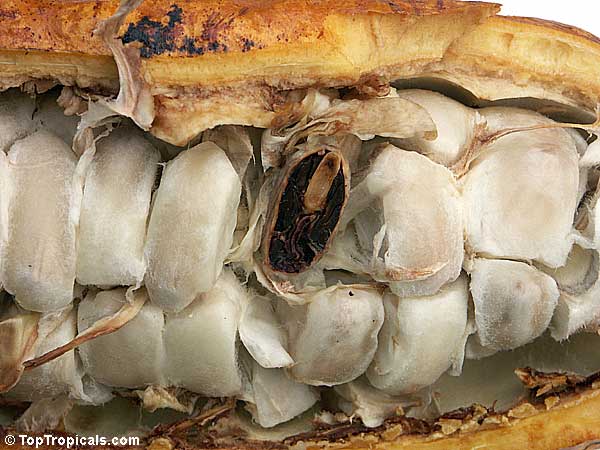
Cacao Chocolate Tree (Theobroma cacao)
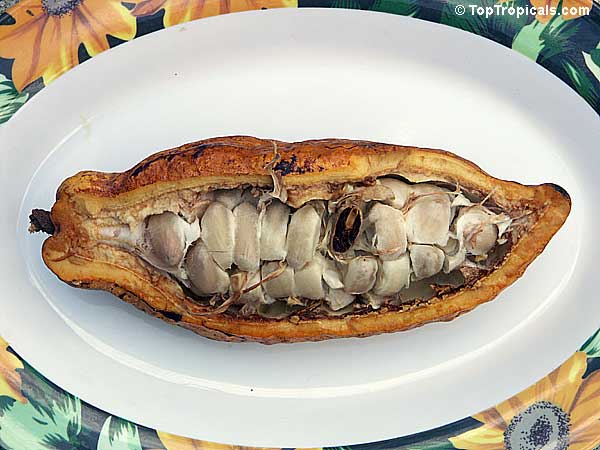
Cacao Chocolate Tree (Theobroma cacao)
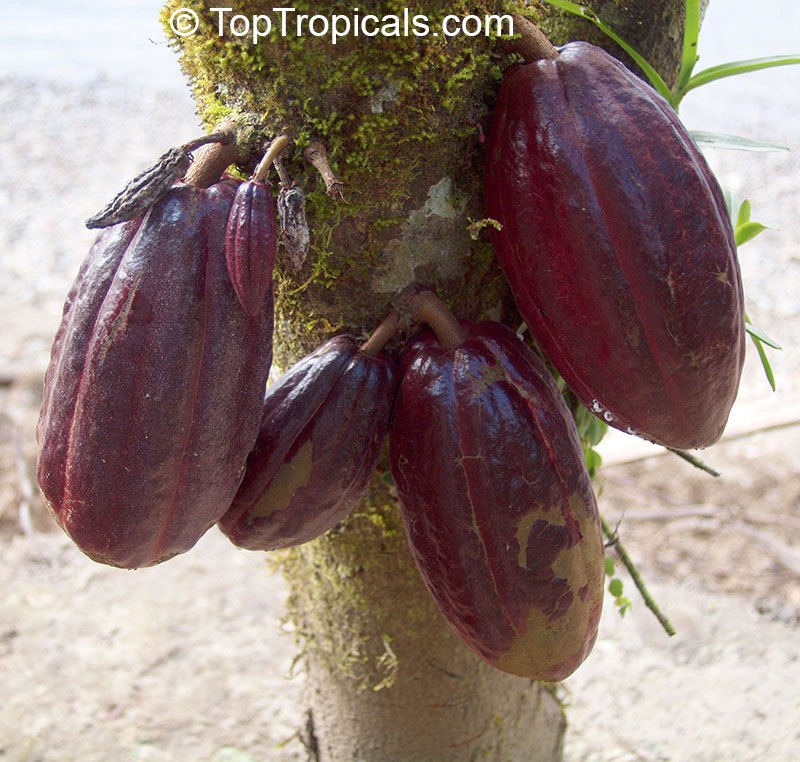
Cacao Chocolate Tree (Theobroma cacao)
🛒Get your own Chocolate Tree
#Fun_Facts #Food_Forest
JOIN 👉 @TopTropicals
Fun Facts About the Guava Flower
Guava Flower
- 🌸 Frilly and Fabulous - Guava flowers may be small, but they're packed with fluffy white stamens that give them a soft, powder-puff look.
- 🌸 Pollinator Magnet - Bees and butterflies love guava blooms, making them a great addition to a pollinator-friendly garden.
- 🌸 Scent-sational - The flowers have a light, pleasant fragrance that adds a touch of sweetness before the fruit even arrives.
- 🌸 Bloom to Fruit - Each flower can turn into a delicious guava fruit, making them both beautiful and productive.
- 🌸 Part of the Showy Family - Guava (Psidium) belongs to the Myrtaceae family, which also includes eye-catching bloomers like Eucalyptus, Bottlebrush (Callistemon), and the stunning Rose Apple (Syzygium).
📚 More from previous posts about: #Guava
🛒 Shop Guava Trees
#Food_Forest #Guava #Fun_facts
🔴 Join 👉 TopTropicals
Discover top 10 fruiting plants youll ever need for your health benefits
⁉️ I planted Mango and Avocado trees, and I still have room for more trees but want to use the space wisely. What other trees should I plant to get the most benefits out of the fruit?
✅ Everyone loves planting Mango or Avocado trees for their well-known benefits. But did you know that adding a variety of other fruit trees to your garden can expand those benefits even more? If you plant just one of each of these 10 trees, you'll have a complete spectrum of nutrients and health-boosting ingredients you ever need. With a diverse range of healthy fruits, you'll boost your diet, improve your health, and elevate your lifestyle.
By planting these 10 diverse fruit trees, you’ll not only enjoy a delicious and abundant harvest but also ensure your garden provides all the nutrients needed for a healthier, more vibrant life:
1. Guava
2. Coffee
3. Noni
4. Papaya
5. Banana
6. Dragon fruit
7. Tamarind
8. Surinam Cherry
9. Nescafe
10. Loquat
⚠️ Learn more about these 10 top fruit you'll ever need for your health benefits in our following posts... Stay with us and make sure to subscribe! ⬇️
🛒 Shop fruit trees
#Food_Forest #Remedies
🔴 Join 👉 TopTropicals
Date:
Five benefits of growing your own Pineapple
Q: Can I grow my own pineapple fruit?
A: Growing a Pineapple plant - Ananas comosus - is a fun and rewarding experience that offers both visual and practical benefits:
1. Fresh, homegrown fruit: One of the main benefits of growing a pineapple plant is that you can enjoy the fruits of your labor by harvesting fresh, delicious pineapples right from your own backyard.
2. Aesthetic appeal: Pineapple plants are visually appealing with their long, spiky green leaves and bright, vibrant fruits. They can add a tropical, exotic touch to any garden or indoor space.
3. Low maintenance: Pineapple plants are relatively easy to grow and require minimal maintenance. They can tolerate a variety of soil and light conditions and don't require frequent watering or fertilization.
4. Health benefits: Pineapple fruit is rich in vitamins, minerals, and antioxidants that can provide a range of health benefits, including improved digestion, boosted immunity, and reduced inflammation. It is recommended to eat a slice of a pineapple after every meal to keep healthy digestive system.
5. Collectable varieties: The pineapple plant can be easily propagated by cutting off the top of a pineapple fruit. However, for those seeking excellent quality, it is recommended to choose superior hybrids from professional growers. Become the proud owner of "The King of Fruits" collection! It takes up minimal space and provides fresh fruit throughout the year.
Read more about Pineapple: The most luscious Hospitality Fruit - Pineapple.
Remember to add Sunshine Ananas fertilizer to your purchase for a long lasting Pineapple crop season.
Date:
Carefree
Garden:
How easy is it to grow a Papaya tree?
Q: What is the easiest to grow fruit tree? It must tolerate, heat, rains, and hurricanes! I live in Florida.
A: Papaya is the easiest to grow fruit tree. In our garden in Florida, newly planted Papaya trees survived several hurricanes, frosts, drought and heat, and keep producing year around!
We all enjoy eating Papaya fruit every day. It is great for digestion and is a perfect naturally sweet, healthy snack. Even our PeopleCats love Papaya. Check out this short video how our cat Cash is begging for his daily Papaya treat!
Why do we love Papaya? Fun facts about Papaya:
Not a tree: Papaya is technically a giant herb with a single, straight trunk that can grow up to 30 feet tall.
Gender flexible: Papaya plants can change their gender based on environmental conditions. This complex mechanism ensures better adaptability.
Cold and wind resistant: Papayas can withstand light freezes and strong winds, making them surprisingly hardy for a tropical plant.
Solo cultivars: These smaller, round or oval papayas are incredibly sweet and less susceptible to fruit flies.
How to grow a Papaya Tree: Practical Guide
Papaya is one of the fastest fruiting plants to grow. Often starting production the same year from planting a seed, papayas are ideal for gardeners seeking quick rewards. Many dwarf varieties reach only 6-8 feet tall, yet produce large crops of full-sized fruit that are easy to harvest. Papaya trees are space-efficient, making it possible to plant multiple trees in even small gardens. Plant 2-3 different cultivars to enjoy year-round harvests of healthy, delicious fruit.
How Easy Are Papaya Trees to Grow?
Papaya trees are exceptionally easy to grow. Technically a large herbaceous
plant rather than a true tree, they are resilient and adaptable. They can
tolerate light freezes and even hurricane winds without significant damage.
Additionally, many varieties are self-fertile, but planting multiple trees
encourages better pollination and higher yields.
What Light Levels and Soil Types Are Ideal?
Papayas thrive in full sunlight, so choose a sunny spot in your garden or
balcony. They prefer well-draining, fertile soil enriched with organic matter.
Add compost or manure to improve soil quality and ensure healthy growth.
Avoid waterlogged areas as papayas are sensitive to standing water.
How Much Watering Is Required?
Papayas need some watering to thrive, especially during the growing and
fruiting seasons. Water deeply once or twice a week, depending on your climate,
ensuring the soil remains moist but not waterlogged. Mulching around the base
helps retain moisture and regulate soil temperature.
Growing Papayas in Containers
Papayas can be successfully grown in large containers, making them ideal
for gardeners in cooler regions or those with limited space. Choose a container
at least 7 gallons in size with good drainage. Use a rich, well-draining
potting mix, and place the container in a sunny location. Select dwarf varieties
to keep the plant manageable and productive.
Health Benefits of Papaya
Papaya is considered a superfood due to its high nutritional value. Rich in
the enzyme papain, it aids digestion and promotes gut health. Papaya is also
an excellent source of vitamins A, C, and E, as well as antioxidants that
boost immunity and overall wellness. Additionally, papaya leaves can be used as
wraps for cooking meats, naturally tenderizing them.
Papayas are a low-maintenance, high-reward addition to a Southern garden or greenhouse collection, whether in the ground or in a container. Their fast growth, year-round fruiting potential, and health benefits make them a must-have for gardeners and fruit enthusiasts alike.
Photo above: For small gardens, limited space, or container culture, choose dwarf varieties that remain compact and short (5-8 ft tall) while producing a tremendous amount of fruit! Most productive dwarf varieties: Red Vietnam, Lady Red, TR Hovey, Wan Deng. Semi-dwarf: Waimanalo, Sunrise.
Top 10 fruit youll ever need for your health benefits:
#4 Papaya 🍊
🟡 Papaya is a popular ingredient in salads, smoothies, and tropical desserts.- 🟡It contains enzymes like papain that aid digestion and reduce bloating.
- 🟡It is high in vitamin C and vitamin A, the antioxidants in papaya may protect against heart disease and reduce cancer risk.
📚 More about Papaya from previous posts:
- 💋 How to have fresh Papaya fruit year around
- 💋Top 3 most wanted Papaya varieties
- 💋The secret facts of Papaya's private life
- 💋Papaya-Citrus Marinade
- 💋Top 10 fast-fruiting trees: Papaya (Carica papaya)
🛒 Plant a Papaya Tree
#Food_Forest #Remedies #Papaya
🔴 Join 👉 TopTropicals
Date:
Benefits of growing your own tropical fruit
"The fruit of the mango tree is no longer forbidden.
Indeed, it has been recommended to me by the physicians as an antidote to the
plague."
- Louis IX, King of France -
Q: Why do you want to grow your own tropical fruit tree?
A: Growing your own tropical fruit tree can have many benefits. Here are a few reasons why someone might choose to grow their own tropical fruit tree:
1. Fresh, flavorful fruit: When you grow your own tropical fruit tree, you have access to fresh, flavorful fruit that you may not be able to find at your local grocery store. Tropical fruit, like avocado, mangoes, papayas, and passionfruit, jackfruit, Dragon Fruit, Annona have a short shelf life, and the fruit you find at the store may have been harvested weeks ago. When you grow your own fruit tree, you can pick the fruit when it's fully ripe and enjoy it at its peak flavor. Besides, some rare fruit like Akee or Sapodilla simply never offered from the store.
2. Environmental benefits: Growing your own fruit trees can have environmental benefits. Trees absorb carbon dioxide from the air and release oxygen, which can help reduce your carbon footprint. Additionally, growing your own fruit trees reduces the need to transport fruit long distances, which can help reduce greenhouse gas emissions.
3. Cost savings: Depending on where you live and the availability of tropical fruit, growing your own fruit tree can be a cost-effective way to enjoy your favorite tropical fruits.
4. Gardening and outdoor hobby: Growing a fruit tree can be a fulfilling and rewarding outdoor hobby. It can also be a great way to teach children about where their food comes from and the importance of taking care of the environment.
Overall, growing your own tropical fruit tree can be a great way to enjoy fresh, flavorful fruit, reduce your carbon footprint, save money, and enjoy a fulfilling outdoor hobby.
In the photo: Mango tree in Top Tropicals garden.
Date:
Ten
top fruiting plants you'll ever need
for your health benefits
Q: I planted Mango and Avocado trees, and I still have room for more trees but want to use the space wisely. What other trees should I plant to get the most benefits out of the fruit?
A: Everyone loves planting Mango or Avocado trees for their well-known benefits. But did you know that adding a variety of other fruit trees to your garden can expand those benefits even more? If you plant just one of each of these 10 trees, you'll have a complete spectrum of nutrients and health-boosting ingredients you ever need. With a diverse range of healthy fruits, you'll boost your diet, improve your health, and elevate your lifestyle. Let's check out the TOP TEN most rewarding and useful fruit...
1. Guava
Guava is rich in vitamin C, which boosts the immune system and helps protect
against colds and infections.
Guava helps regulate blood sugar levels, making it a good option for people
with diabetes.
Its potassium content helps maintain healthy blood pressure.
Guava's antioxidants, like lycopene and vitamin C, contribute to glowing
skin and may reduce the risk of cancer.
Guava is eaten fresh, made into juices, jams, and jellies, or added to
desserts and smoothies.
2. Coffee
Coffee is widely enjoyed as a beverage and is used in various desserts and
drinks.
It is rich in antioxidants, which may reduce inflammation and lower the
risk of chronic diseases.
It improves focus and mental alertness due to its caffeine content.
Coffee boosts metabolism and aid in fat burning, supporting weight
management.
3. Noni
Noni
is known for its anti-inflammatory properties and may help reduce joint
pain and arthritis symptoms.
Fresh noni fruit and juice are popular in traditional herbal medicine and
drinks.
It boosts the immune system due to its rich vitamin C content.
Noni juice is used traditionally to improve digestion and fight infections.
4. Papaya
Papaya is a popular ingredient in salads, smoothies, and tropical desserts.
It contains enzymes like papain that aid digestion and reduce bloating.
It is high in vitamin C and vitamin A, the antioxidants in papaya may
protect against heart disease and reduce cancer risk.
5. Banana
Bananas
are rich in potassium, which helps regulate blood pressure and supports
heart health.
They provide a quick source of energy and are great for post-workout
recovery.
The fiber in bananas aids digestion and promotes gut health.
East them fresh, add to smoothies, bake into breads and desserts, or use in
various savory dishes.
6. Dragon fruit
Dragon
fruit is often used in smoothies, fruit salads, and refreshing drinks.
It is high in fiber, aiding digestion and promoting gut health.
Low in calories and packed with nutrients, it's great for weight
management.
7. Tamarind
Tamarind is a common ingredient in sauces, chutneys, and beverages.
Rich in antioxidants, it protects the liver and reduces inflammation.
It contains natural compounds that help lower cholesterol and improve heart
health.
Tamarind has a mild laxative effect, aiding digestion and relieving
constipation.
8. Loilita (Surinam) Cherry
Surinam cherry is rich
in vitamin C, boosting the immune system and skin health.
Its antioxidants reduce inflammation and protect against free radical
damage.
It contains fiber, which supports healthy digestion.
Surinam cherries are used in jams, sauces, and desserts or eaten fresh.
9. Nescafe
Nescafe - Mucuna pruriens - is used in herbal supplements or ground into powder for teas and health drinks.
It is known for its potential to boost dopamine levels, improving mood and reducing stress.
It supports cognitive function, muscle growth and increases energy levels.
10. Loquat
Loquat are very popular and are eaten fresh or used in making jams, jellies, pies, and fruit salads.
Loquat is rich in vitamin A, supporting eye health.
It contains antioxidants that help fight inflammation and reduce the risk of chronic diseases.
The fiber in loquats aids digestion and helps maintain healthy blood sugar levels.
By planting these 10 diverse fruit trees, you'll not only enjoy a delicious and abundant harvest but also ensure your garden provides all the nutrients needed for a healthier, more vibrant life.
Secret Banana Daiquiri Recipe: Healthy Never Tasted So Good!
🍹 Banana Daiquiri Recipe Ingredients:
- · 1 ripe banana
- · 2 ounces light rum
- · 1 tablespoon sugar
- · 1 ounce lime juice
- · 1/2 ounce triple sec (optional for added depth)
- · Ice cubes
- · Slice of lime or banana for garnish
- 🍹Instructions:
- · Prepare the Banana: Peel the banana and cut it into chunks.
- · Blend the Ingredients: In a blender, combine the banana chunks, light rum, sugar, lime juice, and triple sec.
- · Add a handful of ice cubes. Blend on high until the mixture is smooth.
- · If the mixture is too thick, you can add a small amount of water or more lime juice to adjust the consistency.
🍹Garnish and Serve:
· Pour the mixture into a chilled glass. Garnish with a slice of lime on the rim of the glass or a small wheel of banana. Serve immediately and enjoy the refreshing tropical flavors!- · This Banana Daiquiri is not only refreshing but also offers a creamy texture and a perfect balance of sweetness and citrus. It's a fantastic choice for hot days or when you're in the mood for something a bit exotic. Cheers!
📚 About Banana from previous posts:
- 💋Top Ornamental Banana Varieties - Which One Belongs in Your Garden?
- 💋Best Edible Bananas to Grow - Sweet, Unique, and Delicious!
- 💋How Many Banana Varieties Can You Grow? (More Than You Think!)
- 💋Top 10 fruit you'll ever need for your health benefits: #5 Banana growing and fun facts
- 💋How to make tasty Carambola Banana Whip
- 💋Why Bananas? They are good for you and are fun to grow
- 💋Bananas help you feel fuller and enhance your mood
🛒 Banana Bliss Starts Here
#Food_Forest #Recipes
🔴 Join 👉 TopTropicals
How many varieties of Bananas can I grow?
Bananas (Musa sp.) in containers
- 💛 At Top Tropicals, we have a few dozen varieties of Bananas (Musa sp.) - ranging from popular commercial and plantain types to spectacular ornamental bananas with colorful, tropical foliage.
- 💛 Banana plants are a favorite in Southern gardens, indoor plant collections, and greenhouses in cooler climates. Fast and easy to grow, they transform any space into a tropical paradise in just one season and can produce fruit for you in as little as 8–18 months after planting.
- 💛 Bananas are a powerhouse of nutrition, packed with potassium for heart health, fiber for digestion, and vitamins B6 and C for immunity. They’re a natural energy booster, great for snacks, smoothies, and even baking. Plus, their tryptophan content can improve your mood, and their low sodium helps regulate blood pressure.
- 💛 With so many delicious and unique varieties, growing different types of bananas lets you enjoy a range of flavors, textures, and uses - whether fresh, blended, or cooked - making them a must-have in any tropical or indoor garden!
Discover the most popular edible and ornamental bananas in our next post 🔽
🎥 Banana selection today at TopTropicals farm. Come over to pick the best one!
📚 More about Banana from previous posts:
- 💋Top 10 fruit you'll ever need for your health benefits: #5 Banana growing and fun facts
- 💋How to make tasty Carambola Banana Whip
- 💋Why Bananas? They are good for you and are fun to grow
- 💋Bananas help you feel fuller and enhance your mood
🛍 Shop Banana varieties
#Food_Forest #Bananas
🔴 Join 👉 TopTropicals
